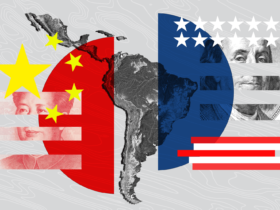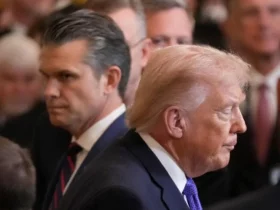Specifically, they seem to have learned from experiences in Iraq.
Specifically, they seem to have learned from experiences in Iraq.
By Islam Farag, Cairo / Egypt
The approach that Gulf states are now taking in their relations with the de facto government in Syria, despite all the reservations and concerns about its background, suggests that the Gulf Arab regimes have learned a lesson from the catastrophic mistakes they made following the fall of the Sunni regime of Saddam Hussein in Iraq and the rise of Shiite movements to power.
At that time, those countries believed that this fundamental change in the form and essence of power posed a threat to their own interests and very existence. As a result, the Gulf capitals adopted cautious, and often hostile, attitudes stemming from an exaggerated fear of the Shiite threat.
These stances led to similar Arab attitudes that opted for distancing themselves from the new authorities, thus leaving the field open for Iranian influence, which took advantage of the circumstances to its benefit. Iraq, with its deteriorating security, political, and economic conditions following the fall of the regime in 2003, became fully prepared for Tehran to do as it pleased by deploying its proxies and harnessing them to reshape the country politically, culturally, and security-wise in line with Iran’s interests and to serve its expansionist goals that pose the greatest threat to the Gulf states.
Overcoming fears
Therefore, despite the Gulf’s anxious reactions as Syrian cities fell one after another into the hands of jihadist rebels against Bashar al-Assad’s regime, and despite their cautious and deliberate responses following the rebels’ unchallenged seizure of power, the Gulf capitals swiftly overcame any concerns or reservations they might have had about the new administration. This was done to avoid leaving the field vacant for any non-Arab regional player to reshape the collapsed state in accordance with their desires and interests, and to prevent any repeat of Iran’s influence scenario, which had been expanding since its dominance over Iraq. This was a nightmare extended to the point of encircling the Gulf states from all sides.
It is no surprise that Qatar was quick to support the new regime in Damascus, sending a high-level delegation headed by Minister of State for Foreign Affairs Mohammad al-Khlifi. This is in line with its consistent backing of any regime with an Islamic leaning, regardless of whether it’s linked to a terrorist group.
The key point here is the stance of Saudi Arabia, the UAE, and Bahrain, countries that have consistently opposed regimes of this kind. Despite the fact that the de facto government is essentially Hayat Tahrir al-Sham and its allies, which are labeled as terrorist organizations, these Gulf states have surprisingly decided to reopen their embassies in Damascus.
Subsequently, Riyadh sent a delegation headed by one of the Royal Court advisors to meet with the leaders of the new Syrian regime. This step was followed by an air bridge to provide humanitarian aid to the Syrian people, in a gesture reflecting the Kingdom’s desire to establish and maintain lines of communication with the new leaders, regardless of any reservations it may have.
Over the past week, Riyadh, Abu Dhabi, and Doha have received a delegation of new Syrian officials, headed by the Ministers of Foreign Affairs and Defense, as well as the head of intelligence. This is a move that even the most optimistic observers would not have anticipated, especially given the speed at which it occurred and the fact that it took place less than a month after the fall of Bashar Al-Assad, who was received by Saudi Arabia at the Arab-Islamic summit just two months prior.
Before its fall, the Gulf states had begun to recognize the significant political cost of the isolation experienced by the Syrian regime. Over the past two years, they had ended their boycott of the regime that had begun following its crackdown on protesters in the 2011 uprising.
This was in an attempt to win over the regime and potentially influence it to sever ties with Tehran. Furthermore, they sought to end the international isolation and alleviate sanctions imposed on it and expressed their readiness to provide financial and economic support, hoping the regime ceases its trade in Captagon, which has flooded the region.
Gains and challenges
The fall of the Assad regime and the consequent collapse of Iranian influence in Syria represent a significant gain for the Gulf states. However, it also creates two more severe types of challenges that require genuine and active engagement to influence Syria and prevent it from becoming a new arena for threats that undermine Gulf stability and interests.
The first of these challenges is the new regime that emerged from terrorist and armed organizations. This nascent regime includes extremely dangerous factions that may be tempted by their victory over the Assad regime to attempt exporting this model to neighboring Arab countries, including the Gulf states, under the pretext of establishing the so-called Islamic Caliphate.
This possibility could increase if the new leadership fails to control these factions or finds an opportune moment to exploit and direct them towards this path in order to achieve narrow or temporary gains.
This threat may persist if this regime monopolizes power in Syria without abandoning its rebellious logic and disregarding the philosophy of the state, and willingly becomes an easy tool manipulated by other regional actors to fuel instability in the region.
Even if the new regime manages to maintain discipline in its relations with its neighbors, there is no guarantee whatsoever that it will maintain the same discipline in its dealings with domestic minorities or even Syrian citizens who do not share its ideology. This could drag Syria into a quagmire of division or repeat the scenario of the civil war. Neither of these outcomes is preferable for the Gulf states, which seek to preserve the unity and territorial integrity of Syria.
The second challenge is the strong possibility that the new regime will become organically dependent on an expansionist regional power that may exploit it to blackmail and threaten the Gulf states, in a scenario that replicates the organic dependence of the Assad regime on Tehran.
The only plausible explanation for the current Gulf initiative to interact with the new regime in Damascus is that they are seeking to avoid repeating past errors.
Gulf nations perceive the dramatic shift in Syria as both a challenge and an opportunity. They see a chance to collaborate with Damascus and shape its future trajectory through political and financial engagement. This could not only establish Syria as an ally and friend but also serve as a counterweight to any external powers seeking influence within it.
Substantive doubts
Nevertheless, some interpret the Gulf’s recent overtures to Damascus as a mere exploratory move to assess the inclinations of the new regime. This could serve as a prelude to future support or as a period of observation to see whether the new leadership can substantiate their claims with reassuring actions for the Gulf states.
Skeptics contend that the Gulf states adopted an overtly antagonistic posture towards the regimes that emerged from the Arab Spring uprisings of 2011, notwithstanding the perceived moderation of these regimes compared to the current Syrian regime. The Gulf capitals viewed these regimes as emblematic of Islamist political movements influenced by Türkiye and considered the revolutions that brought them to power as a potential catalyst for similar upheavals within the Gulf.
These skeptics argue that the Gulf states would find it difficult to reconcile with jihadist regimes that are overtly backed by Ankara, particularly when it comes to a pivotal country like Syria. Given their experiences with Iran’s expanding influence, these states are unlikely to alter their perception of any comparable influence from Ankara, notwithstanding the current rapprochement.
It is widely believed that the Gulf states, especially Saudi Arabia, will perceive the new regime in Damascus as the initial stage of Turkish regional expansion. Should this endeavor prove successful, it would position Ankara as the leader of the Sunni world, drawing support from a popular base of jihadists and the Muslim Brotherhood. This is a scenario that the Kingdom, which views itself as the rightful claimant to this leadership, is unlikely to accept.
Syrian options
Irrespective of which perspective history vindicates, the prospect of enduring tension between Ankara and the Gulf states will remain if the former persists in its pursuit of a solitary victory in this political sphere.
Fundamentally, Syria is confronted with a dichotomous choice. It can either continue to exist as a failed state under the governance of a disparate group of rebels, thereby fomenting division and instability within its borders and exporting these challenges to neighboring states, including Türkiye. Conversely, Syria can transition into a stable, independent nation that leverages its potential to serve the interests of its citizenry impartially, thus becoming a valuable asset to both it and its regional neighbors.
The second option cannot be achieved by Türkiye alone or without the assistance of the Gulf states.
Having endured a protracted 14-year civil war that has resulted in the widespread destruction of its infrastructure and the displacement of millions of its citizens, Syria is now poised to embark on a process of reconstruction. Simultaneously, the country is preparing to reintegrate a substantial portion of its displaced population, many of whom have sought refuge in Türkiye, thereby imposing a significant burden on its economy.
The prospect of this country regaining its attractiveness to its citizens is contingent upon the immediate commencement of a comprehensive reconstruction process, which is estimated to cost hundreds of billions of dollars. Furthermore, significant financial injections are required to stimulate economic recovery. The Gulf states are uniquely positioned to provide the lion’s share of the requisite funding.
Abdul Khaleq Abdullah, a leading Emirati academic and a close advisor to the UAE government, has asserted that while Türkiye wields substantial influence in the emerging Syrian landscape, Ankara cannot monopolize it. In a recent X post, he argued that the new Syria is orienting itself towards the Arabian Gulf in the south, rather than being solely influenced by Türkiye in the north.
He further substantiated his claim by highlighting the fact that the inaugural foreign visit undertaken by a senior Syrian political, military, and security delegation was to Saudi Arabia, Qatar, and the UAE, and not to any other country.
Even Ahmad al-Sharaa, the de facto leader of Syria, predicted in an interview with Al Arabiya, the Saudi channel, that Riyadh would play a significant role in the new Syria, given the vast investment opportunities and its strong desire for the country’s stability, which would ultimately benefit the kingdom and other Gulf nations.
I personally believe that the Gulf states will capitalize on this opportunity and actively seek to contribute to Syria’s economic recovery. However, their involvement will be gradual, contingent upon the evolving political landscape within Syria, improvements in security across the country, and the nature of the developing relationship with the new Syrian regime.
However, it would be naive to assume that substantial investments in reconstruction efforts would not be contingent upon implementing specific political reforms and securing economic safeguards.

















Leave a Reply